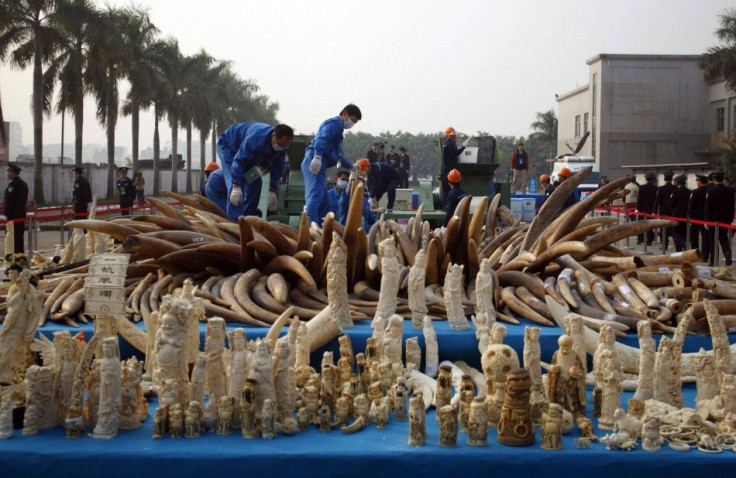Six Tonnes of Confiscated Illegal Ivory Destroyed in China, Will the Commitment to Curb Illegal Smuggling Remain?

A total of 6.15 tonnes of raw elephant tusks and carved ivory pieces were crushed in China on Monday in a seemingly very public display of its commitment to wean out illegal smuggling activities. It was a first for its kind in China. The world certainly hopes it won't be the last.
The items which the Chinese government seized over the years were dumped into two crushers and ground to rubble and ash in Dongguan City, Guangdong.
"The event, the first public ivory destruction in China, was to demonstrate the country's determination to discourage illegal ivory trade, protect wildlife and raise public awareness," Xinhua News quoted Zhang Jianlong, deputy head of the State Forestry Administration (SFA).
The U.S. government was very pleased with the development.
"The United States commends the government of the People's Republic of China for destroying more than five tons of ivory in Guangdong Province today," State Department spokeswoman Marie Harf said in a statement.
Conservationists likewise lauded the monumental action.
"With the government taking such a symbolic action, it sends out a very strong message to the potential consumers that the government won't allow any illegal trade in ivory," Jeff He, special assistant to the Asia Regional Director at the International Fund for Animal Welfare (IFAW), told CNN.
But will it really put a clamp to the illegal trade? According to the Convention on the International Trade in Endangered Species, a total of 22,000 elephants were slaughtered in 2012 for their precious ivory tusks.
Estimates released in 2012 in the PLOS ONE scientific journal revealed that from about 322,000 in 2002, the Central African forest-elephant population has dwindled to just 100,000 in 2011.
There are observations poachers could be driven by rising prices because of scarcity.
"If we don't understand the role of speculators in the trade, the destruction could be counterproductive in the long run," Tom Milliken from Traffic, the wildlife trade monitoring organisation, told BBC.
"But I think where we stand right now, the public relations role of these acts is symbolically a good thing."
Some of the pulverized ivory will be placed in museums for display all over China to raise public awareness on wildlife protection, the SFA said.
The government will store the rest.
"This event in itself is not going to solve these issues," Joe Waltson, Asia Program Director at the Wildlife Conservation Society, said. "But that doesn't mean it doesn't have any value."
"It needs to be welcomed, if only to embolden those within the Chinese government who are pushing for more substantive action on this issue," Mr Waltson said.
He hoped it would great a major impact on the conservation of African and Asian elephants.




















